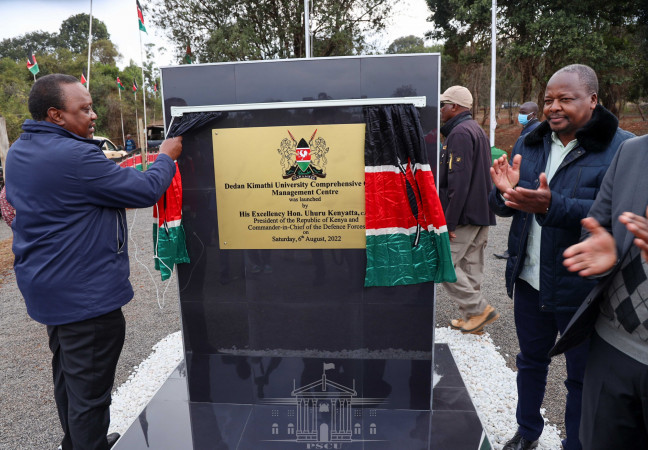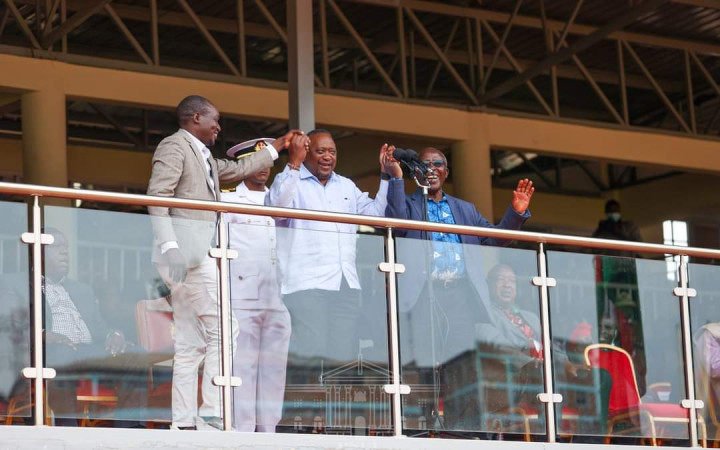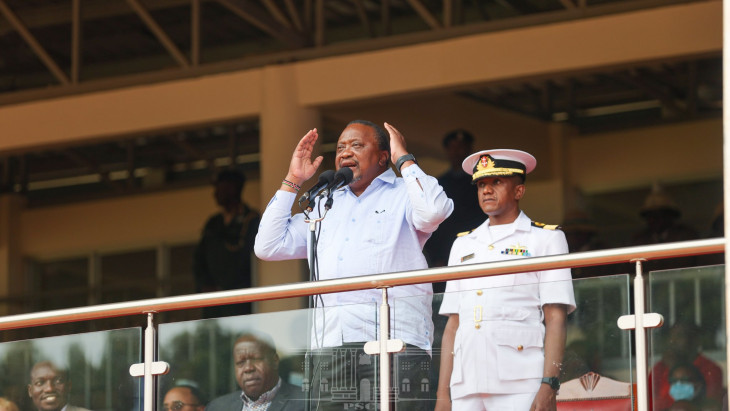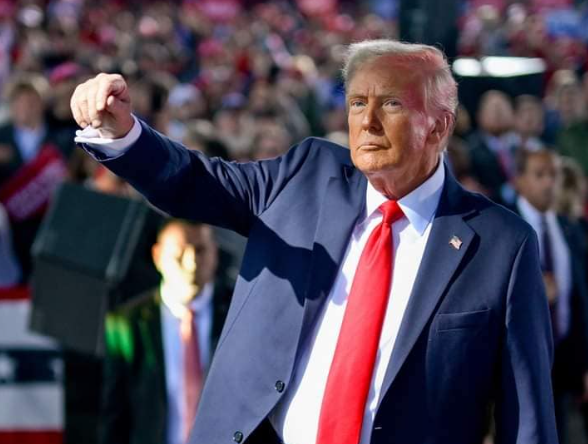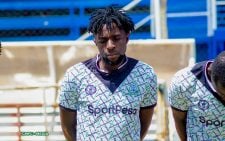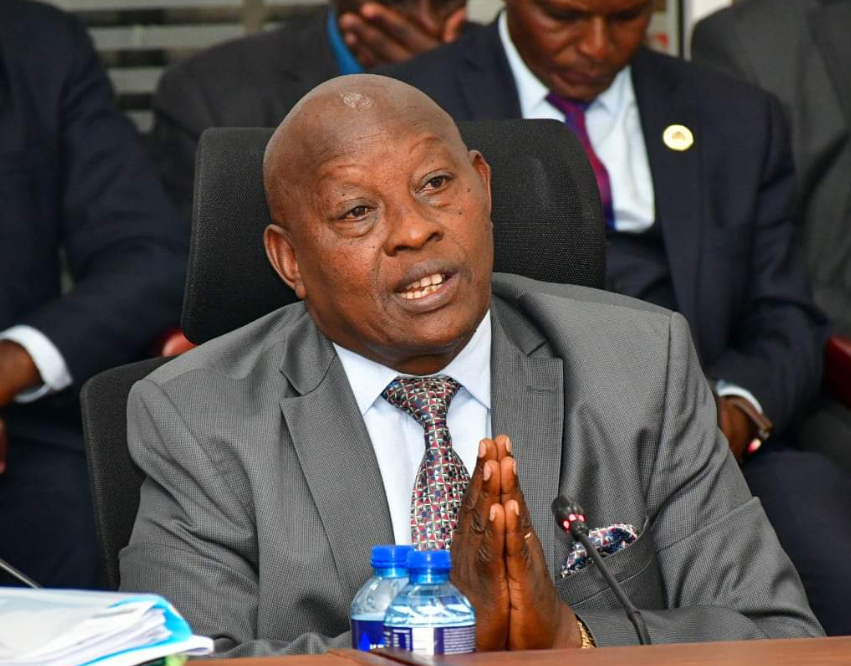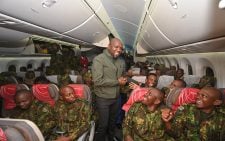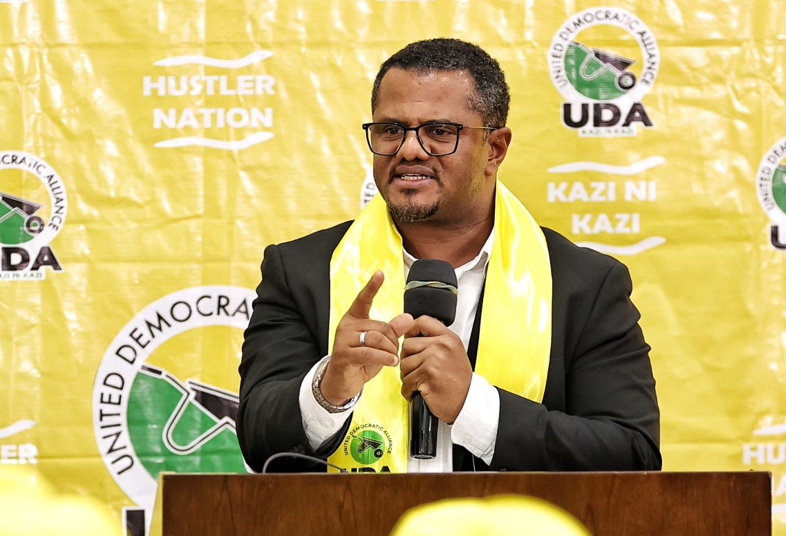Young people can elevate country to the next level

President Uhuru Kenyatta underscores the role youth have in society if only they can dream big and act.
We must also celebrate today, our young people. They are our heroes and yet we so often forget it.
As one statesman retorted: “…We do not own this country; we have just borrowed it from our children” as represented by our young people.
And if history is not just a path to the past, but a trail into the future, then a spotlight must be shone on our young people this Mashujaa Day.
Did you know that the ‘Makers of this Nation’ were dominated by young people who worked closely with a few elder statesmen?
Did you know that the Independence Cabinet and the new administration were also dominated by young people?
And did you know that the first draft of Sessional Paper Number 10 of 1965, which became the blue print vision of our economy, was written by a 29-year old technocrat known as Japheth Shamalla?
These young men were not extra-ordinary. They became our independence heroes because they made more opportunities out of the little that they had been given.
Instead of focusing on the hardships of building a new nation from the ground up, they focused on the possibilities.
The independence war had taught them that energy flows where attention goes.
They had learnt from the struggle that what you focus on grows and the words you utter become flesh.
Our young liberators became heroes because they focused on what could be done; and not the obstacles standing in their way.
Their attention was on the positive and the words they uttered about their country, were full of optimism.
This attitude of positive energy made most of them heroes because they dared do the impossible.
And here is a lesson to our young people today. As I said in my Madaraka Day address, Kenya is still a work in progress.
It has its good and its bad; its ugly and its sweet. If our attention goes to the bad and the ugly, all energy will flow to the negative and we will become a nation of angry and disillusioned people.
But the young people who will embrace the positive and the possible, will emerge as heroes and ‘makers of things’.
A good starting point for our young people is to look for a problem and solve it.
If you solve a problem, heroism and success will naturally follow you. And I have three recent examples to illustrate this here in Kenya.
The First one, last week on Friday, I invited my Cabinet and the entire Nation as I unveiled a series of transformative programmes and projects undertaken by our young people.
The team of over 800 young men and women, drawn from across the Republic, have undertaken seminal programmes that include; the National Wide Airborne Geophysical Survey, the Geospatial Project, the Cyber Project, Drones and the National Security Industrial Project.
These young innovators not only delivered high quality of work, they also did so at a fraction of the set cost.
For example, in respect to the mapping of our national resources under the National Airborne Geophysical Survey Project, a private firm had quoted to do it at a cost of Sh30 billion, but our team of young professionals have programmed to do the job at a cost of Sh4 billion. Currently, this project is at 70 per cent completion.
With the completion of this seminal project, the comprehensive geology of our country is now known and that information will be used to chart a path to prosperity and self-sufficiency for host communities and the wider Nation.
Our young people have similarly completed the mapping of our entire country to the sub-location level, an endevour that was last undertaken in 1972.
Thanks to their efforts, we now have an annotated inventory of all public utilities across the country, all public infrastructure, all schools both public or private, all hospitals and all other public utilities, and a description of all physical developments all the way to individual homes.
Because of this, the next frontier of e-Commerce within our Nation will be powered by the National Address System that will be rolled out across our Nation.
The e-Commerce trade channel will be serviced with drones made by Kenyans for Kenyans.
The Second one is about two engineering students from Jomo Kenyatta University of Agriculture and Technology (JKUAT).
The two, Michael Mwaisakenyi and Ken Gicira, created an automated weeding robot to help farmers eliminate the need for herbicides in their crops.
Artificial intelligence
The robot uses artificial intelligence to discriminate between weeds and crops.
The innovation has a robotic arm for weeding in-between the crop row and a plough-like weeding tool, that is dragged by the robot as it passes in between the rows of crops to remove inter-row weeds.
This innovation emerged winner of the 2020 Imagine Cup, beating teams from across nine European, Middle Eastern and African countries.
The innovation is scheduled for presentation at the Imagine World Championship in Seattle, Washington State.
Added to the many innovations from our young people during the Covid-19 Crisis, the Third heroic example I wish to mention, is that of Roy Allela, holder of a Bachelor’s degree in Microprocessor Technology and Instrumentation, from the University of Nairobi.
This 25-year old engineer had a strong urge to communicate with his 6-year old deaf niece.
He had a problem to solve and he did not shy away from it. After many experiments, he finally managed to create a pair of smart gloves that helped him communicate with his deaf niece.
These gloves have flex sensors that help the deaf wearer, communicate and vocalise messages to a mobile phone through Bluetooth.
These gloves are made to be customized to any client’s specifications and have 93 per cent accuracy of vocalising messages.
By solving the problem of his 6-year old niece, Roy Allela has created a solution that will help thousands of deaf people globally.
This innovation has won the Hardware Trailblazer Award by the American Society of Mechanical Engineers.
Roy was also the second runner-up for the Royal Academy of Engineering Leaders in Innovation.
With the examples of the National Security Programme, weeding robot and the smart glove, it is clear that Kenya has a pool of talented and gifted young people.
Where these transformative innovations came from, there are many more. All we need to do is look.
And if our national attention moves to the search for solutions, our natural energy will flow to a positive place.
Allow me to end my address today by recording two Mashujaa lessons from our Founding Fathers to our young people.
And I am compelled to do this because, as one statesman said: “…If it was not for the elders correcting the mistakes of the young, there would be no state”.
My intention today is not to correct, but to point our young people in a direction that will make them heroes in our times.
The first lesson from our liberation heroes is that: “…if it’s got to be; it’s got to be me”.
That is, if anything will happen, it all depends on me. If change will happen, do not expect your neighbours to be the ones to cause it. You are the one to do it.
Answer the summons of change and be the driver of it. And all you need to do is to ‘show up’ at the arena.
As Theodore Roosevelt once said, “the man who matters is not the one who stands by the wayside criticizing, saying how things could have been done better. The man who matters is the one in the arena.
The man whose …face is marred by dust and sweat and blood; the man who errs, and comes short again and again… knowing that if he fails, at least he failed trying”.
My call to our young people, therefore, is to get off the wayside of pessimism and get into the arena.
If the young veterans of war had not heeded the summons of change, we would not be having independence today.
The second lesson to our young people from the liberation heroes is this: be prepared to pay the price.
And I am using the word price to mean what you pay in exchange for something.
The price of our liberation was high, but there was no doubt that our Founding Fathers were prepared to pay for it.
Some of them paid the price with their own lives. But what we got in exchange is far greater than what we could imagine.
Borrowing from the young veterans of our liberation, my appeal to our young people is not to be afraid of paying the price.
If you have a dream, pay the price and the dream will come to you; if you have a challenge, pay the price and it will resolve itself.
And in saying this, I am inspired by the words of the Rev Frederick L Donaldson, in a sermon he gave almost 100 years ago.
In this sermon, he dreaded an emerging culture of not ‘paying the price’.
A culture characterized by “… wealth without work; pleasure without conscience; knowledge without character; commerce without morality; science without humanity; worship without sacrifice and politics without principle”.
If, indeed, our Founding Fathers were young people when they created Kenya, our young people can found a new Kenya in our lifetime.
They have what it takes to create a new wave of heroism if they get on the arena, prepared to pay the price of dreaming.
On my part as your President, I will continue to accord our youth every opportunity to serve in the public service.
Last crop
In the last crop of Chief Administrative Secretaries I appointed; the vast majority of the appointees were in their 20s and 30s, a continuation of my promise to the youth that my Government will empower them and give them a greater voice.
I also take this opportunity to commend all the young people that are serving their Nation at both the national and county levels.
Our national response to the coronavirus pandemic was fortified by their immense contributions.
I thank our valiant critical and essential services providers for keeping Kenya going.
I also thank our healthcare workers for their dedication and selflessness in the midst of the greatest threat to public health in a century; our law-enforcement officers who are keeping Kenya safe and orderly.
What then is our lesson from our independence heroes this Mashujaa Day? What our heroes taught us is that, it is very easy to lose a country.
And as your 4th President, I need to remind you that, we will have a 5th, 6th and even 10th President.
But we have only one Kenya. This is all we have and we must protect it at all cost.
I cannot conclude this address without honouring our COVID-19 heroes. In particular, I want to give special mention to our departed health workers such as; Dr. Doreen Lugaliki of Nairobi South Hospital, Clifford Mburia of Kitengela Medical Centre, Moses Ringera of the University of Nairobi Health Services and Marian Awuor of Rachuonyo Hospital, among others. Their memory will forever be engraved in our hearts.
These brave souls paid the ultimate price. And like our Founding Fathers, they teach us that heroes are ordinary people who are made extra-ordinary by unusual circumstances.
Similarly, and given the fear-ridden circumstances our Covid heroes found themselves in, they teach us that heroism is not the absence of fear; it is the conquest of fear.
On this day, we are all called to embrace the challenges of our times with courage and fortitude, and to seize the constitutional moment to redefine our future and our shared prosperity.
And in doing so, we will live to the call of our Founding Fathers when they secured our independence.
